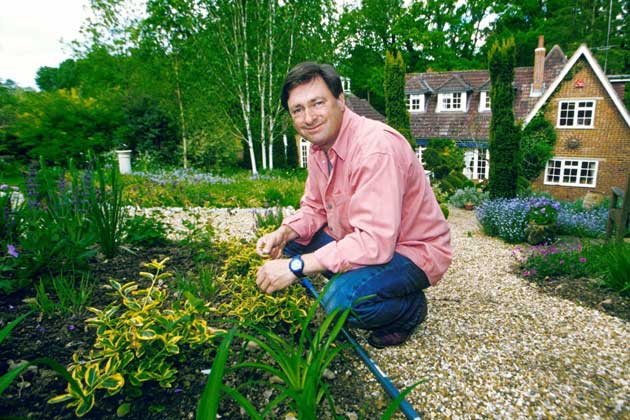Grow your own: The seeds of change
As shoppers feel the pinch, more Britons are tearing out the decking and turning their lawns into vegetable plots. Rachel Shields reports

The nation's landscape is changing before our eyes. Record numbers of people are preparing to dig up their manicured lawns and privet hedges. Even the most modish gardens are sporting freshly dug vegetable beds, sapling fruit trees and nascent compost heaps.
Fruit and vegetable seed sellers last week reported record sales, with many saying that they cannot keep up with a sudden rise in demand. Meanwhile, the landscape gardening industry is in crisis, with many firms laying off staff.
The Association of Professional Landscapers has appointed a new chief executive officer, Jason Lock, in its search for strategies to tackle the downturn. "Without exception all our members are feeling the pinch. There has been a drop in enquiries and work booked," said Mr Lock.
The vogue for landscape gardening was spurred on in the late 1990s by garden makeover shows such as Ground Force, headed by Alan Titchmarsh. It has been replaced by a fashion for "edible gardening", with celebrities such as the Blur bassist Alex James espousing self-grown "five-a-day" healthy eating.
"Because the housing market is slowing down, there just isn't the movement through the chain that usually turns up landscaping work," said Mr Lock.
The UK's leading seed sellers, Tuckers, Marshalls and packetseeds.com, are struggling to cope with the number of orders coming in. The Horticultural Trades Association put UK sales of the seeds of edible plants at £40.3m in 2007; new figures expected shortly are likely to show significant growth.
In March the Royal Horticultural Society will unveil the latest stage in its "Grow Your Own" campaign, this time turning its attention to fruit-growing. The campaign, which aims to show people that they don't need acres of space to begin growing, and that gardening can reduce the amount of money spent on food, claims to have inspired half a million people to start cultivating fruits and vegetables.
As the trend grows, so does the demand for space. Allotments, once largely the preserve of the retired, are now hot property among young professionals. There are 330,000 allotments in the UK, and 100,000 people on waiting lists in the hope of securing one. The true number of people seeking allotments is thought to be much higher as some councils have closed their lists.
"There has been a phenomenal rise in the amount of people wanting allotments. There aren't enough because lots of the land was taken away in recent years, but because local authorities have a statutory duty to provide allotments they have to look for new land," said Karen Kelly, of the National Society of Allotment and Leisure Gardeners.
Local authorities are obliged to provide 15 allotments per 1,000 households. Many authorities came under fire in recent years for selling off land once used for this purpose to property developers.
"Everyone, from every social group and level that you can imagine, has allotments – doctors, the unemployed, the elderly, families. It is growing in popularity because people care about food, their carbon footprint and the economic situation – allotments address all of these issues," said Ms Kelly.
Home-grown happiness
Gill Dickers, 59, from Headingley, Leeds, says: "I started growing my own because I wanted a supply of fresh salad and herbs. It's lovely being outside in the spring and summer doing something pleasurable and productive. I planted leeks, kohlrabi and potatoes, too. I like knowing that what I'm feeding my family is organic. I've taken over the area where my son usually plays football and I'm expanding my production this year. The cost of buying supermarket fruit and vegetables is crazy – that is one reason people are growing their own. It's also about being more productive. The world's resources are limited and people want to do their bit. As you can use lots of your household waste as compost, it encourages recycling, too."
Join our commenting forum
Join thought-provoking conversations, follow other Independent readers and see their replies
Comments
Bookmark popover
Removed from bookmarks